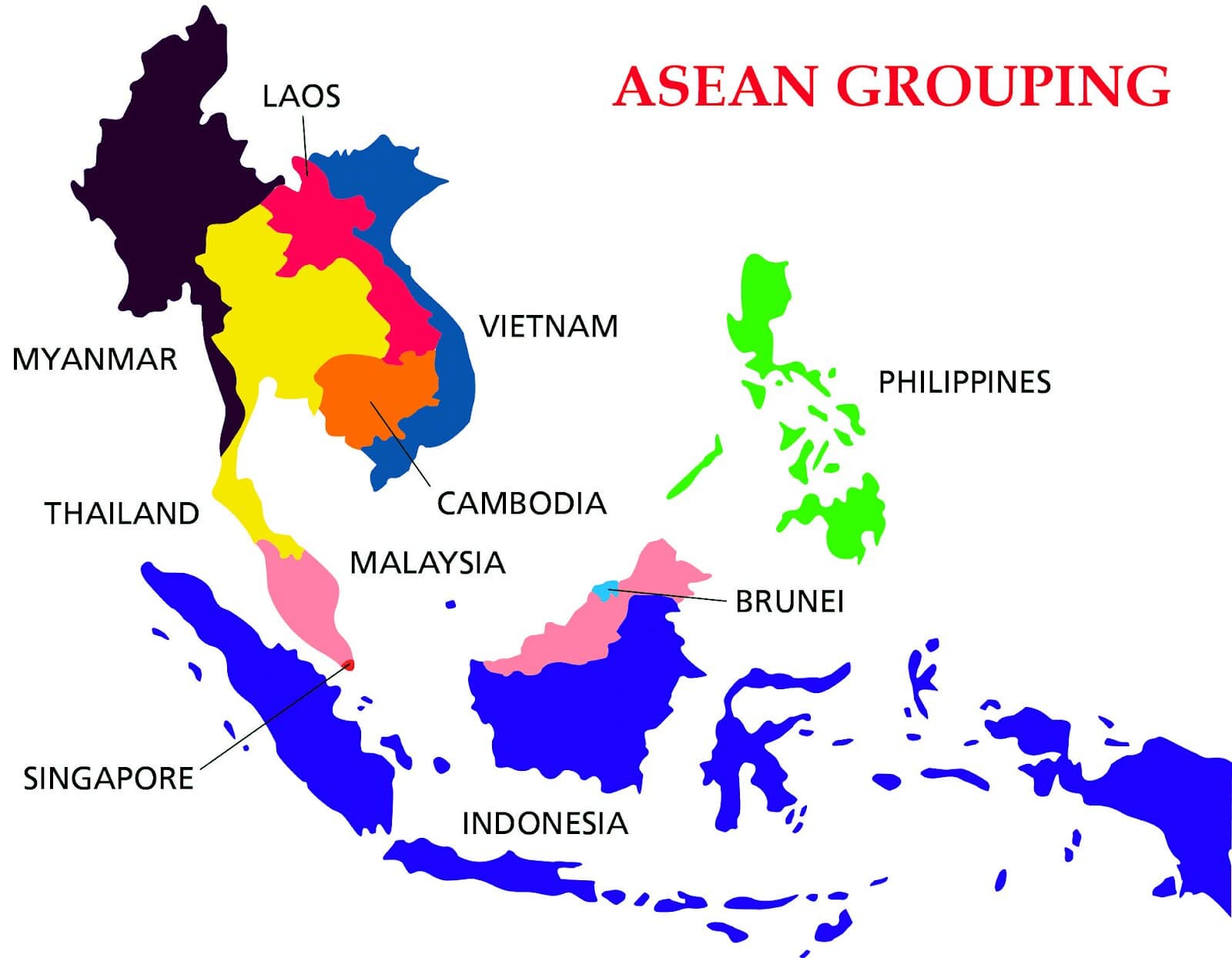International Relations
ASEAN-India Economic Ministers’ Consultations
- 31 Aug 2020
- 5 min read
Why in News
Recently, the 17th ASEAN-India Economic Ministers Consultations was held virtually, co-chaired by India and Vietnam.
- The meeting was attended by the Trade Ministers of all the 10 ASEAN (Association of Southeast Asian Nations) countries viz. Brunei, Cambodia, Indonesia, Laos, Malaysia, Myanmar, Philippines, Singapore, Thailand and Vietnam.
Key Points
- Related to Covid-19: The Ministers reaffirmed their commitment to take collective actions in mitigating the economic impact of the Covid-19 pandemic.
- They also resolved to ensure macroeconomic and financial stability and resilient supply chain connectivity, particularly the unimpeded flow of essential goods and medicines in the region, in compliance with the WTO rules.
- AIBC’s Report: The report of the ASEAN India Business Council (AIBC) was placed.
- It has recommended that the ASEAN India Trade in Goods Agreement (AITIGA) be reviewed for mutual benefit.
- The review will make the Agreement modern with contemporary trade facilitative practices, and streamline customs and regulatory procedures.
- ASEAN India-Business Council (AIBC) was set up in March 2003 as a forum to bring key private sector players from India and the ASEAN countries on a single platform for business networking and sharing of ideas.
- AITIGA: Discussions on review of the ASEAN India Trade in Goods Agreement (AITIGA) took place.
- The AITIGA is a Free Trade Agreement (FTA) among the ten member states of the Association of Southeast Asian Nations (ASEAN) and India which came into force in January, 2010.
- India emphasized on review on AITIGA at the earliest and the need to strengthen the Rules of Origin provisions, work towards removal of non-tariff barriers and provide better market access.
- The Rules of Origins provisions of AITIGA specify that the preferential treatment under the agreement will be applicable only to goods which have wholly or partially originated in the exporting country.
- India wants strict rules of origin to prevent Chinese goods from flooding the country through ASEAN member countries that may have lower or no duty levels.
- A nontariff barrier is a way to restrict trade using trade barriers in a form other than a tariff. Nontariff barriers include quotas, embargoes, sanctions, and levies.
- India has concerns regarding the FTA, given that its FTA with ASEAN is leading to increased trade deficits with several ASEAN partners.
- India’s trade deficit with the ASEAN rose from around 5 billion USD in 2011 to 21.8 USD billion in 2019.
- Background:
- In 2003, India and ASEAN signed a Framework Agreement on Comprehensive Economic Cooperation to establish an ASEAN-India Regional Trade and Investment Area, which would provide a basis for subsequent FTAs covering goods, services and investment.
- India dropped out of the Regional Comprehensive Economic Partnership (RCEP) in November 2019 at ASEAN+3 summit, because of increasing trade deficits with partner nations and increasing China-India tensions.
- Recently, India participated in the 6th roundtable meeting of the ASEAN-India Network of Think Tanks (AINTT).
- India highlighted the difficulties that were hindering strong response to deal with the Covid-19 pandemic.
Way Forward
- An immediate review of the agreement and the effective utilisation of the ASEAN-India Free Trade Agreement will contribute to the realisation of the 2020 trade target of 200 billion USD set by India and ASEAN.
- Over dependence of India and other countries on China can be decreased by developing a common forum/platform with ASEAN countries. Moreover, better collaboration and partnership with ASEAN is in line with India's Act East Policy.





